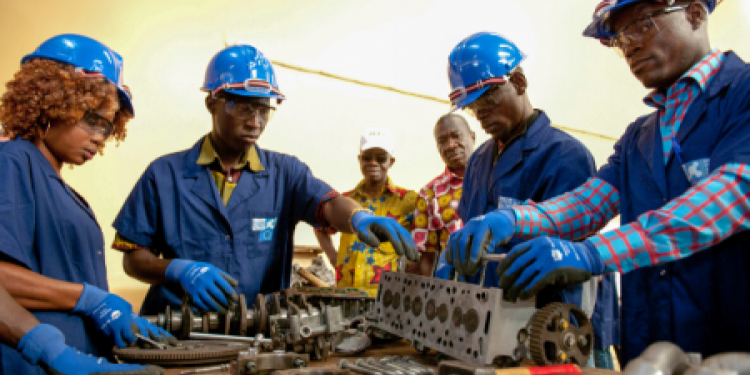adverts
In an effort to lower the nation’s unemployment rate, the government has declared plans to raise the percentage of students studying Technical and Vocational Educational Training (TVET) to 50% of all pupils.
The number of junior high school students pursuing TVET programmes in senior high schools has increased dramatically, according to the Commission for Technical and Vocational Educational Training. However, more work needs to be done to make the sector more appealing, particularly to young people.
Ghana must embrace TVET, stressed Dr. Fred Kyei Asamoah, Director-General of the Commission, citing foreign examples like Germany, where 65% of students pursue TVET.
adverts
He emphasised the value of dual training, in which students attend lectures in addition to work experience.
“TVET is not just seen in Ghana; it is viewed globally as well. In Germany, the proportion of students pursuing TVET was almost 70% when we first took office. Around 65, the Germans are searching for a new strategy, advanced dual TVET. If you wish to attend university, that is acceptable, but you must complete dual training, which entails working three days and attending lectures two days. This is because, like it or not, the TVET approach is what will ultimately occur.
So, the focus is on the product. It’s impressive what we’ve accomplished—from less than 20,000 junior secondary school students attending TVET to over 60,000. Have we arrived yet, though? Not at all! At Keats, we anticipate that roughly 50% of our students will choose to pursue TVET.
Janet Abobigo, an entrepreneur and CEO of Unijay Company Limited, praised the idea, claiming that it will strengthen Ghana’s TVET sector and increase employment prospects for young people.
She also emphasised the value of technical expertise in some fields and the possibility of exporting goods to the US and other nations.


